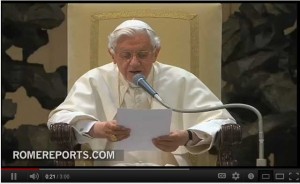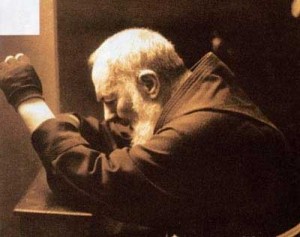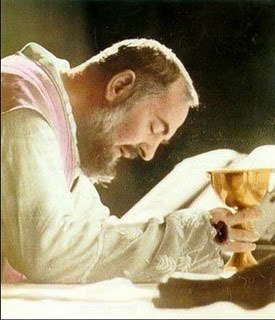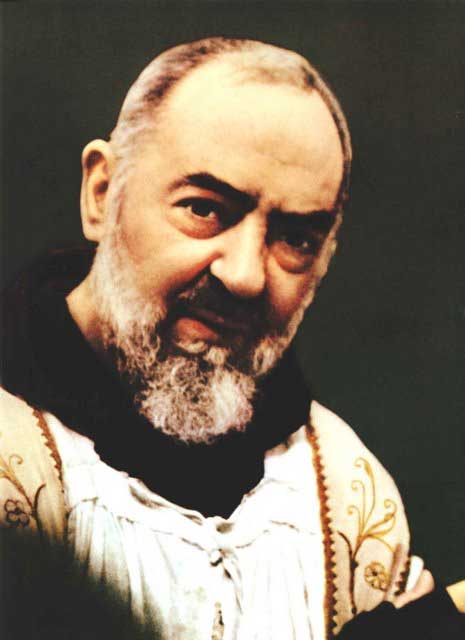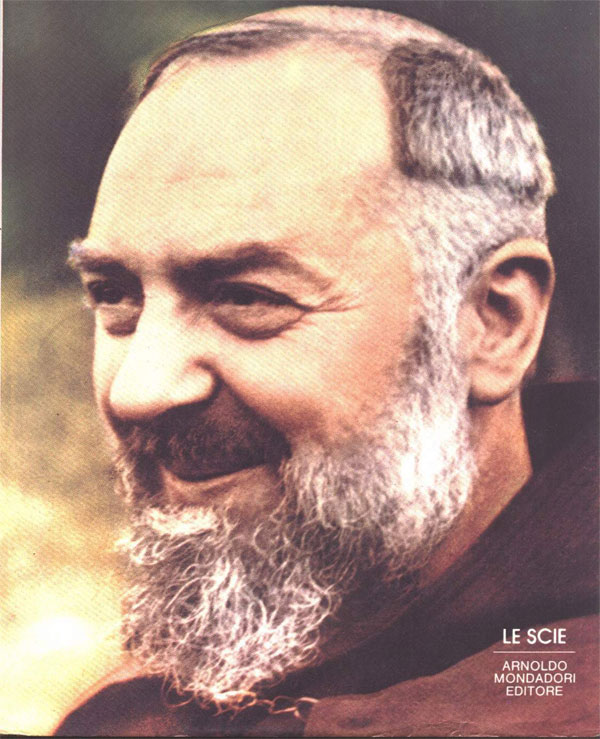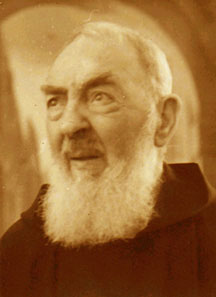On Holy Mother Mary
On Holy Repentance
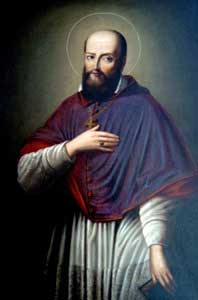 CHAPTER III. Devotion is suitable to every Vocation and Profession.
CHAPTER III. Devotion is suitable to every Vocation and Profession.
WHEN God created the world He commanded each tree to bear fruit after its kind; 88 Gen. i. 12. and even so He bids Christians,—the living trees of His Church,—to bring forth fruits of devotion, each one according to his kind and vocation.
A different exercise of devotion is required of each—the noble, the artisan, the 9 servant, the prince, the maiden and the wife; and furthermore such practice must be modified according to the strength, the calling, and the duties of each individual.
I ask you, my child, would it be fitting that a Bishop should seek to lead the solitary life of a Carthusian? And if the father of a family were as regardless in making provision for the future as a Capucin, if the artisan spent the day in church like a Religious, if the Religious involved himself in all manner of business on his neighbour’s behalf as a Bishop is called upon to do, would not such a devotion be ridiculous, ill-regulated, and intolerable? Nevertheless such a mistake is often made, and the world, which cannot or will not discriminate between real devotion and the indiscretion of those who fancy themselves devout, grumbles and finds fault with devotion, which is really nowise concerned in these errors.
No indeed, my child, the devotion which is true hinders nothing, but on the contrary it perfects everything; and that which runs counter to the rightful vocation of any one is, you may be sure, a spurious devotion.
Aristotle says that the bee sucks honey from flowers without damaging them, leaving them as whole and fresh as it found them;—but true devotion does better still, for it not only hinders no manner of vocation or duty, but, contrariwise, it adorns and beautifies all.
Throw precious 10 stones into honey, and each will grow more brilliant according to its several colour:—and in like manner everybody fulfils his special calling better when subject to the influence of devotion:—family duties are lighter, married love truer, service to our King more faithful, every kind of occupation more acceptable and better performed where that is the guide.
It is an error, nay more, a very heresy, to seek to banish the devout life from the soldier’s guardroom, the mechanic’s workshop, the prince’s court, or the domestic hearth. Of course a purely contemplative devotion, such as is specially proper to the religious and monastic life, cannot be practised in these outer vocations, but there are various other kinds of devotion well-suited to lead those whose calling is secular, along the paths of perfection. The Old Testament furnishes us examples in Abraham, Isaac and Jacob, David, Job, Tobias, Sarah, Rebecca and Judith; and in the New Testament we read of St. Joseph, Lydia and Crispus, who led a perfectly devout life in their trades:—we have S. Anne, Martha, S. Monica, Aquila and Priscilla, as examples of household devotion, Cornelius, S. Sebastian, and S. Maurice among soldiers;—Constantine, S. Helena, S. Louis, the Blessed Amadaeus, 99 It is probable that S. Francis here means to indicate Amadeo IX., Duke of Savoy, who died 1472. and 11 S. Edward on the throne. And we even find instances of some who fell away in solitude,—usually so helpful to perfection,—some who had led a higher life in the world, which seems so antagonistic to it. S. Gregory dwells on how Lot, who had kept himself pure in the city, fell in his mountain solitude. Be sure that wheresoever our lot is cast we may and must aim at the perfect life.
Check out other Discerning Hearts Posts on St. Francis de Sales
[p2p type=”id” value=”2281″]
[p2p type=”id” value=”2622″]
Meditations from the Introduction to the Devout Life by St. Francis de Sales
Tags: chapter xix, devotion, family, heresy, holy mother mary, introduction to the devout life, love, repentance, st francis de sales
This entry was posted on Thursday, January 24th, 2013 at 12:07 am
You can follow any responses to this entry through the RSS 2.0 feed.
Mark breaks open The TEN COMMANDMENTS–
The Fifth Commandment:
YOU SHALL LOVE YOUR NEIGHBOR AS YOURSELF.
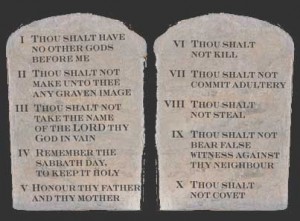
[powerpress]
Mark Hart is an author, speaker, director and teacher, Mark’s work both written and spoken, is known across the country and world. While he serves as the Vice President of LIFE TEEN, he is known to tens of thousands simply as the “Bible Geek ®†Mark passionately echoes the gospel to all he encounters. He is as deep as he is funny, and his love for his wife and daughters is second only to his immense love for Jesus Christ.
Visit Mark at www.lifeteen.com
Tags: jesus christ, lifeteen, love, mark hart, Vice President
This entry was posted on Tuesday, January 8th, 2013 at 2:43 pm
You can follow any responses to this entry through the RSS 2.0 feed.
Mark breaks open The TEN COMMANDMENTS–
The Fourth Commandment:
Honor your father and your mother, that your days may be
long in the land which the Lord your God gives you.

[powerpress]
Mark Hart is an author, speaker, director and teacher, Mark’s work both written and spoken, is known across the country and world. While he serves as the Vice President of LIFE TEEN, he is known to tens of thousands simply as the “Bible Geek ®†Mark passionately echoes the gospel to all he encounters. He is as deep as he is funny, and his love for his wife and daughters is second only to his immense love for Jesus Christ.
Visit Mark at www.lifeteen.com
Tags: father, love, mark hart, mother
This entry was posted on Wednesday, January 2nd, 2013 at 6:02 am
You can follow any responses to this entry through the RSS 2.0 feed.
VATICAN CITY, 16 FEB 2011 (VIS) – In his general audience today, held in the Paul VI Hall, the Pope focused his attention on St. John of the Cross, “spiritual friend to St. Teresa and, with her, reformer of the Carmelite religious family. Proclaimed a Doctor of the Church by Pius XI in 1926, he is traditionally known as the ‘Doctor mysticus’, the Mystical Doctor”, the Holy Father said.
John was born to a poor family at Fontiveros near the Spanish town of Avila in 1542 and entered the Carmelite order at Medina del Campo. Ordained a priest in 1567, it was on the occasion of his first Mass that he met Teresa, “who explained to him her plan for the reform of the Carmelites”. In his renewal of his religious profession John took the name “of the Cross” and collaborated enthusiastically in the process of reform, something “which brought him great suffering”, and even led to his imprisonment following an unjust accusation. While preparing a journey to Mexico he fell seriously ill and died in December 1591. He was beatified by Clement X in
1675 and canonised by Benedict XIII in 1726.
St. John of the Cross, said Benedict XVI, “is considered one of most important lyric poets of Spanish literature. He wrote four major works: ‘Ascent of Mount Carmel’, ‘Dark Night of the Soul‘, ‘Spiritual Canticle’ and ‘Living Flame of Love‘.
“In his ‘Spiritual Canticle’ St. John outlines the soul’s journey of purification”, the Holy Father added. “The ‘Living Flame of Love’ continues in the same line, describing in greater detail the condition of union with God. … ‘Ascent of Mount Carmel’ outlines the spiritual itinerary from the point of view of a progressive purification of the soul, which is necessary in order to scale the heights of Christian perfection, symbolised by the summit of Mount Carmel”.
The Pope continued his catechesis by explaining how “the ‘Dark Night of the Soul’ describes the ‘passive’ aspect; in other words, God’s contribution to the process of purifying the soul. Human effort alone, in fact, is incapable of reaching the deepest roots of a person’s bad inclinations and habits. It can halt them but not eradicate them completely. To do this, we need a special action by God which radically purifies the spirit and disposes it to the union of love with Him“.
“The rate of increase of faith, hope and charity goes hand in hand with the work of purification and with progressive union with God, until attaining transformation into Him. When this goal is reached, the soul is immersed in Trinitarian life itself. … This is why the Mystical Doctor held that there is no true union of love with God that does not culminate in Trinitarian union”.
The Pope completed his remarks by asking whether the life of St. John of the Cross has anything to say to everyday Christians, or whether it is an example only for the few select souls who can follow the path of purification and mystical ascesis. “The journey with Christ, travelling with Christ … is not an additional weight to the already sufficiently-heavy burden of our lives”, he said. “It is something totally different. … It is a light, a power which helps us carry our everyday burden. … Allowing ourselves to be loved by Christ is the light which helps us to carry the daily burden, and sanctity is not a task we must accomplish on our own, a very difficult task. … Let us ask God to help us become saints, to allow ourselves to be loved by God, which is the vocation and true redemption of us all”.
Published by VIS – Holy See Press Office – Wednesday, February 16, 2011
Tags: ascent of mount carmel, carmelite order, carmelites, dark night of the soul, doctor of the church, family, heart, holy father, hope, love, Mystical Doctor, purification of the soul, spanish literature, spiritual friend, st. john of the cross, union with god
This entry was posted on Friday, December 14th, 2012 at 12:19 am
You can follow any responses to this entry through the RSS 2.0 feed.
We all fail, we all collapse under the weight of sin.  Who is our “Rock”?  How do we come to see the areas where we are separated from the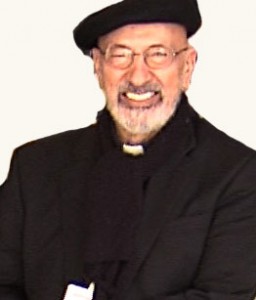 Rock who is Jesus Christ.  Msgr. Esseff talks about the dangers of self-reliance.  He discusses many of the major roots of sin which suck us into self-absorption, and what is the only solution that can save us.  The Father in heaven loves us each so much specifically.  We need to turn to that love and rely completely on Him.
Rock who is Jesus Christ.  Msgr. Esseff talks about the dangers of self-reliance.  He discusses many of the major roots of sin which suck us into self-absorption, and what is the only solution that can save us.  The Father in heaven loves us each so much specifically.  We need to turn to that love and rely completely on Him.
[powerpress]Â
From the USCCB website:
Gospel Mt 7:21, 24-27
“Not everyone who says to me, ‘Lord, Lord,’
will enter the Kingdom of heaven,
but only the one who does the will of my Father in heaven.”Everyone who listens to these words of mine and acts on them
will be like a wise man who built his house on rock.
The rain fell, the floods came,
and the winds blew and buffeted the house.
But it did not collapse; it had been set solidly on rock.
And everyone who listens to these words of mine
but does not act on them
will be like a fool who built his house on sand.
The rain fell, the floods came,
and the winds blew and buffeted the house.
And it collapsed and was completely ruined.”
Tags: heaven, John Esseff, love, sin, USCCB
This entry was posted on Thursday, December 6th, 2012 at 5:43 am
You can follow any responses to this entry through the RSS 2.0 feed.
Episode 20 Beginning to Pray:  “Heaven in Faith”  Day 10 Prayer 2 – “In the heaven of our soul let us be praises of glory of the Holy Trinity, praises of love of our Immaculate Mother.”

[powerpress]
Dr. Anthony Lilles is a Catholic husband and father of three teaching Spiritual Theology at St. John Vianney Theological Seminary. He  teaches spiritual theology and spiritual direction to transitional deacons, and the spiritual classics to the men who enter the Spirituality Year, a year of prayer in preparation for seminary formation.  He is the author of the “Beginning to Pray”  catholic blog spot.
 From “Heaven in Faith: Day 10 Prayer 2” found in The Complete Works vol 1:
From “Heaven in Faith: Day 10 Prayer 2” found in The Complete Works vol 1:
44. …In the heaven of our soul let us be praises of glory of the Holy Trinity, praises of love of our Immaculate Mother.  One day the veil will fall, we will be introduced into the eternal courts, and there will we will sing in the bosom of infinite Love.  And God will give us “the new name promised to the Victor.”” What will it be?  LAUDEM GLORIAE”
For other episodes in the series visit the Discerning Hearts page for Dr. Anthony Lilles
We would like to offer heartfelt thanks to
Miriam Gutierrez for providing for us “the voice” of Blessed Elizabeth for this series
Dr. Lilles’ book, which can be found as a Quality Paperback and e-book edition
Tags: Anthony Lilles, blessed elizabeth of the trinity, carmelites, heaven, heaven in faith, Immaculate Mother, love
This entry was posted on Saturday, December 1st, 2012 at 2:38 pm
You can follow any responses to this entry through the RSS 2.0 feed.
“How do we speak to God in our times? How can we communicate the Gospel to open the way to its salvific truth?” The Holy Father offered an answer to these questions in his catechesis during today’s general audience, held in the Vatican’s Paul VI Hall.
“In Jesus of Nazareth”, the Pope said, “we encounter the face of God, descended from Heaven to immerse Himself in the world of mankind and to teach ‘the art of living’, the road to happiness; to free us from sin and to make us true children of God”.
He continued, “speaking about God means, first and foremost, being clear about what we must bring to the men and women of our time. God has spoken to us, … not an abstract or hypothetical God, but a real God, a God Who exists, Who entered history and remains present in history: the God of Jesus Christ … as a response to the fundamental question of why and how to live. Therefore, speaking about God requires a continual growth in faith, familiarity with Jesus and His Gospel, a profound knowledge of God and strong passion for His plan for salvation, without giving in to the temptations of success. … We must not fear the humility of taking small steps, trusting in the leaven that makes the dough rise slowly and mysteriously. In speaking about God, in the work of evangelisation under the guidance of the Holy Spirit, we must return to the simplicity and essential nature of proclamation: the concrete Good News of God Who cares about us, the love of God which Jesus Christ brought close to us, even unto the Cross, and which in the Resurrection opens us to life without end, to eternal life”.
The Pope explained that for St. Paul, communicating the faith did not mean “showing himself, but rather saying openly and publicly what he had seen and heard in his encounter with Christ, and how much his life had been transformed by that encounter. … The Apostle was not satisfied with merely proclaiming the words, but committed his entire existence to the great work of faith. … To speak about God, we must make space for Him, confident that He acts upon our weakness. We must make space for Him without fear, with simplicity and joy, in the profound conviction that the more we place Him – and not ourselves – at the centre of our lives, the more fruitful our communication will be. … This also holds true for Christian communities. They are called to communicate the transforming action of God’s grace, overcoming individualism, closure, selfishness and indifference, bringing the love of God to daily relationships. We must must act to ensure … we always announce Christ, not ourselves”.
“At this point”, the Holy Father continued, we must ask ourselves “how Jesus Christ Himself communicated. Jesus … spoke about His Father (Whom He called ‘Abba’) and about the Kingdom of God, looking with compassion on the discomforts and difficulties of human existence. … From the Gospel we see how Jesus was interested in every human situation He encountered, He immersed Himself in the lives of the men and women of His time, with complete trust in the help of the Father. … In Him, proclamation and life were entwined: Jesus acted and taught, always taking as a starting point His intimate relationship with God the Father. This approach gives fundamental indications to Christians: living in faith and charity is a way of speaking about God in our times, because it demonstrates the credibility of what we say in words through a life lived in Christ. We must take care to grasp the signs of our times, and thereby to identify the potential, the desires and the obstacles we encounter in contemporary culture, in particular the desire for authenticity, the yearning for transcendence, the sensibility for protecting creation. And we must communicate without fear the answer offered by faith in God”.“Speaking about God, therefore, means enabling others to understand through words and acts that God is not a competitor in our existence but rather its true guarantor, the guarantor of the greatness of the human person. Thus we return to the beginning: speaking about God means communicating, with power and simplicity, through words and the life we lead, that which is essential: the God of Jesus Christ, the God Who showed us a love so great that He took on human flesh, died and rose again for us; the God Who asks us to follow Him and to allow ourselves to be transformed by His immense love in order to renew our lives and our relationships; the God Who gave us the Church, to allow us to journey together and, through the Word and the Sacraments, to renew the entire City of Man so that it might become the City of God”, concluded the Pope.
Tags: children, God Who, jesus christ, love
This entry was posted on Wednesday, November 28th, 2012 at 9:05 am
You can follow any responses to this entry through the RSS 2.0 feed.
 Blessed John Duns Scotus, the teacher of “God’s closeness”. I love the homily below on this great theologian and lover of the Blessed Mother.Â
Blessed John Duns Scotus, the teacher of “God’s closeness”. I love the homily below on this great theologian and lover of the Blessed Mother.Â
CNA- Pope Benedict XVI taught about Franciscan priest and teacher Blessed John Duns Scotus, in one of his Wednesday audiences in July of 2010.  The Holy Father remembered his loyalty and devotion to Christ, the Church and the Successor of St. Peter, as well as his contributions to Christian thought.
During his catechesis, the Pope recalled the life of the medieval Scottish priest and theologian, Blessed John Duns Scotus. He spoke of how the Franciscan, who taught at Oxford, Cambridge, and later in Paris, left France instead of betraying Pope Boniface VIII who was in conflict with King Phillip IV.
This fact, said the Pope, “invites us to remember how many times in the history of the Church, believers have found hostility and promptly even persecution because of their loyalty and devotion to Christ, to the Church and to the Pope.
“We all look with admiration to these Christians, that teach us to protect as a precious inheritance the faith in Christ and the communion with the Successor of Peter and, therefore, with the Universal Church.”
Continuing on the life of the 13th century Franciscan, the Pope said that Blessed Scotus provided three major contributions to Christian thought. The first gift is his “great Christocentric vision” that in the Incarnation “every creature, in and through Christ, is called to be perfected in grace and to glorify God forever.” The second contribution is the theory which led to the dogma “that Our Lady’s preservation from original sin was a privilege granted in view of her Son’s redemptive passion and death.” And finally, Pope Benedict noted his “great attention to the issue of human freedom”as one of his gifts to Christian thought. (more…)
Tags: blessed john duns scotus, blessed mother, Church, death, franciscan priest, homily, love, medieval theologian, pope benedict xvi, theologian
This entry was posted on Thursday, November 8th, 2012 at 4:04 am
You can follow any responses to this entry through the RSS 2.0 feed.
[powerpress]
Join Msgr. John Esseff, as he offers this novena in honor of St. Pio
The entire novena can be found on the The St. Pio of Pietrelcina (Padre Pio) Discerning Hearts Page
Day 8
Is it possible that you are never satisfied with yourself?  Jesus loves you with a loving partiality in spite of all your unworthiness.  He sends down a torrent of graces upon you, and yet you complain.  It is about time this ended and you convinced yourself that you are greatly in the Lord’s debt.  Hence, less complaints, more gratitude, and a great deal of thanksgiving.  You ought to ask Our Lord for just one thing: to love Him.  All the rest should be thanksgiving.
Tags: darkness, death, Jesus, love, st. padre pio, st. pio, st. pio novena
This entry was posted on Saturday, September 22nd, 2012 at 4:42 pm
You can follow any responses to this entry through the RSS 2.0 feed.
[powerpress]
Join Msgr. John Esseff, as he offers this novena in honor of St. Pio
The entire novena can be found on the The St. Pio of Pietrelcina (Padre Pio) Discerning Hearts Page
From the writings of St. Pio:
In the most Holy Sacrament of the Eucharist, in this sacrament of Love, we have true life, a blessed life, and true sacrament of Love; we have true life, a blessed life, and true happiness. Because in it we receive not only those graces that perfect us but the very Author of those graces.
Tags: darkness, death, Jesus, love
This entry was posted on Thursday, September 20th, 2012 at 11:12 pm
You can follow any responses to this entry through the RSS 2.0 feed.
[powerpress]
Join Msgr. John Esseff, as he offers this novena in honor of St. Pio
The entire novena can be found on the The St. Pio of Pietrelcina (Padre Pio) Discerning Hearts Page
Day 5
St Therese of the Child Jesus used to say, “I don’t want to choose either to die or to live, but let Jesus do as He likes with me.â€Â I see clearly that this is the image of all souls who are stripped of self and filled with God… What St. Therese has said ought to be said by every soul inflamed with love of God.
Tags: darkness, death, Jesus, love, st. padre pio, st. pio, st. pio novena
This entry was posted on Wednesday, September 19th, 2012 at 5:49 am
You can follow any responses to this entry through the RSS 2.0 feed.
[powerpress]
Join Msgr. John Esseff, as he offers this novena in honor of St. Pio
The entire novena can be found on the The St. Pio of Pietrelcina (Padre Pio) Discerning Hearts Page
Day 2
I implore you to be faithful and humble and always to keep the great Mother of God before your mental gaze, she who humbled herself more profoundly the more she was exalted. Never, ever be exalted at your virtues but repeat that everything comes from God, and give Him the honor and glory. (more…)
Tags: darkness, death, Jesus, love, st. padre pio, st. pio, st. pio novena
This entry was posted on Sunday, September 16th, 2012 at 6:34 am
You can follow any responses to this entry through the RSS 2.0 feed.
[powerpress]
Join Msgr. John Esseff, as he offers this novena in honor of St. Pio
The entire novena can be found on the The St. Pio of Pietrelcina (Padre Pio) Discerning Hearts Page
Day 1
Jesus Keeps nothing for Himself of what is done for love of Him, and He will repay us very lavishly, Don’t let us make our happiness depend on enjoying wonderful health, or else we should be just like those foolish worldly people to whom it is not given to know the secrets of heaven…. Continue to love Jesus, and make an effort to love Him more and more, without wanting to know anything else He alone will steer us to the haven of salvation.
St. Padre Pio Communion Prayer:
Stay with me, Lord, for it is necessary to have you present so that I do not forget You. You know how easily I abandon You
Stay with me, Lord, for You are my life and without You I am without fervor.
Stay with me, Lord, for You are my light and without You I am in darkness.
Stay with me, Lord, so that I hear Your voice and follow You.
Stay with me, Lord, for I desire to love You very much and alway be in Your company.
Stay with me, Lord, if You wish me to be faithful to You.
Stay with me, Lord, as poor as my soul is I want it to be a place of consolation for You, a nest of Love.
Stay with me, Jesus, for it is getting late and the day is coming to a close and life passes, death, judgment and eternity approach. It is necessary to renew my strenth, so that I will not stop along the way and for that, I need You. It is getting late and death approaches, I fear the darkness, the temptations, the dryness, the cross, the sorrows. O how I need You, my Jesus, in this night of exile!
Stay with me tonight, Jesus, in life with all its dangers, I need You.
Let me recognize You as Your disciples did at the breaking of the bread, so that the Eucharistic Communion be the Light which disperses the darkness, the force which sustains me, the unique joy of my heart.
Stay with me, Lord, because at the hour of my death, I want to remain united to You, if not by Communion, at least by grace and love.
Stay with me, Lord, for it is You alone I look for, Your Love, Your Grace, Your Will, Your Heart, Your Spirit, because I love You and ask no other reward but to love You more and more.
With a firm love, I will love You with all my heart while on earth and continue to love You perfectly during all eternity. Amen.
The novena is offered by Msgr. John Esseff with Kris McGregor
Tags: darkness, death, Jesus, love, st. padre pio, st. pio, st. pio novena
This entry was posted on Saturday, September 15th, 2012 at 2:54 pm
You can follow any responses to this entry through the RSS 2.0 feed.
Mark breaks open The TEN COMMANDMENTS–
The First Commandment:
I am the LORD your God, who brought you out of the land of Egypt, out of the house of bondage. You shall have no other gods before me. You shall not make for yourself a graven image, or any likeness of anything that is in heaven above, or that is in the earth beneath, or 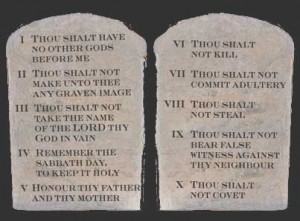 that is in the water under the earth; you shall not bow down to them or serve them.
that is in the water under the earth; you shall not bow down to them or serve them.
[powerpress]
Mark Hart is an author, speaker, director and teacher, Mark’s work both written and spoken, is known across the country and world. While he serves as the Vice President of LIFE TEEN, he is known to tens of thousands simply as the “Bible Geek ®†Mark passionately echoes the gospel to all he encounters. He is as deep as he is funny, and his love for his wife and daughters is second only to his immense love for Jesus Christ.
Visit Mark at www.lifeteen.com
Tags: Bible Geek Mark, jesus christ, love, Visit Mark
This entry was posted on Tuesday, September 11th, 2012 at 6:30 am
You can follow any responses to this entry through the RSS 2.0 feed.
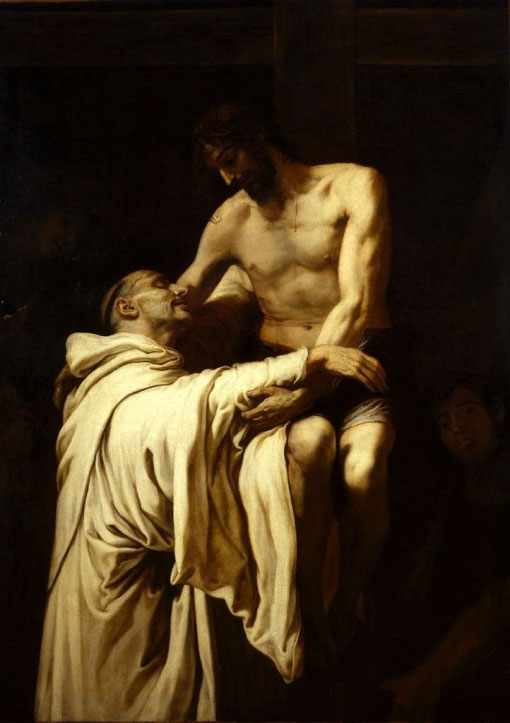 St. Bernard of Clairvaux, a great mystical doctor of the Church. What a heart for Jesus and the Blessed Virgin (I’m sure he still has).
St. Bernard of Clairvaux, a great mystical doctor of the Church. What a heart for Jesus and the Blessed Virgin (I’m sure he still has).
That is curiosity.
That is vanity.
–
That is love.”
St. Bernard of Clairvaux, was a Cisterian monk, who lived in France in the 12th century. Living at a time when the great gothic cathedrals where born, St. Bernard, advocated for simplicity and austerity in life. He was concerned about the temptations of worldly things and desires. He wished to focus solely on the love of Christ and the Blessed Mother; everything else was folly.
To read more about the details of his life you can visit here.
What captures my heart is his legacy of prayer and spiritual writings. He truly deserves the title Doctor of the Church. What a feast he has left us! Pope John Paul II has said that if we wish to learn to pray, look to the Mystical Doctors…he truly is one of those special souls. There is so much, where can one begin? Begin with Mary. Ask the Blessed Mother, she will lead you through his teachings.
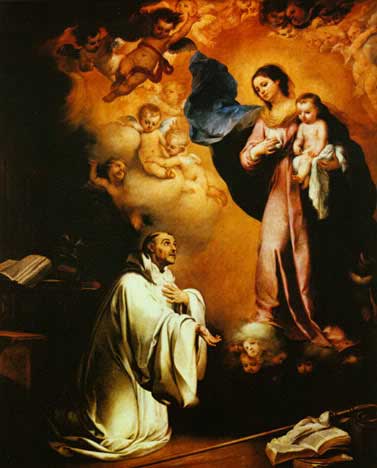 St. Bernard of Clairvaux composed the famous prayer to the Most Blessed Virgin Mary known as The Memorare
St. Bernard of Clairvaux composed the famous prayer to the Most Blessed Virgin Mary known as The Memorare
REMEMBER, O most gracious Virgin Mary, that never was it known that anyone who fled to thy protection, implored thy help, or sought thy intercession was left unaided. Inspired with this confidence, I fly to thee, O Virgin of virgins, my Mother; to thee do I come; before thee I stand, sinful and sorrowful. O Mother of the Word Incarnate, despise not my petitions, but in thy mercy hear and answer me. Amen.
St. Bernard on the Blessed Mother
St. Bernard on Holy Repentance
–
Highly recommended reading introduction to St. Bernard would be – “The Fulfillment of All Desire” by Ralph Martin
–
Tags: blessed mother, blessed virgin mary, Church, discerning heart, doctor of the church, emmaus road, holy repentance, intercession, love, monastic life, mystic, mystic of the Church, ralph martin, st bernard of clairvaux
This entry was posted on Monday, August 20th, 2012 at 12:40 am
You can follow any responses to this entry through the RSS 2.0 feed.





